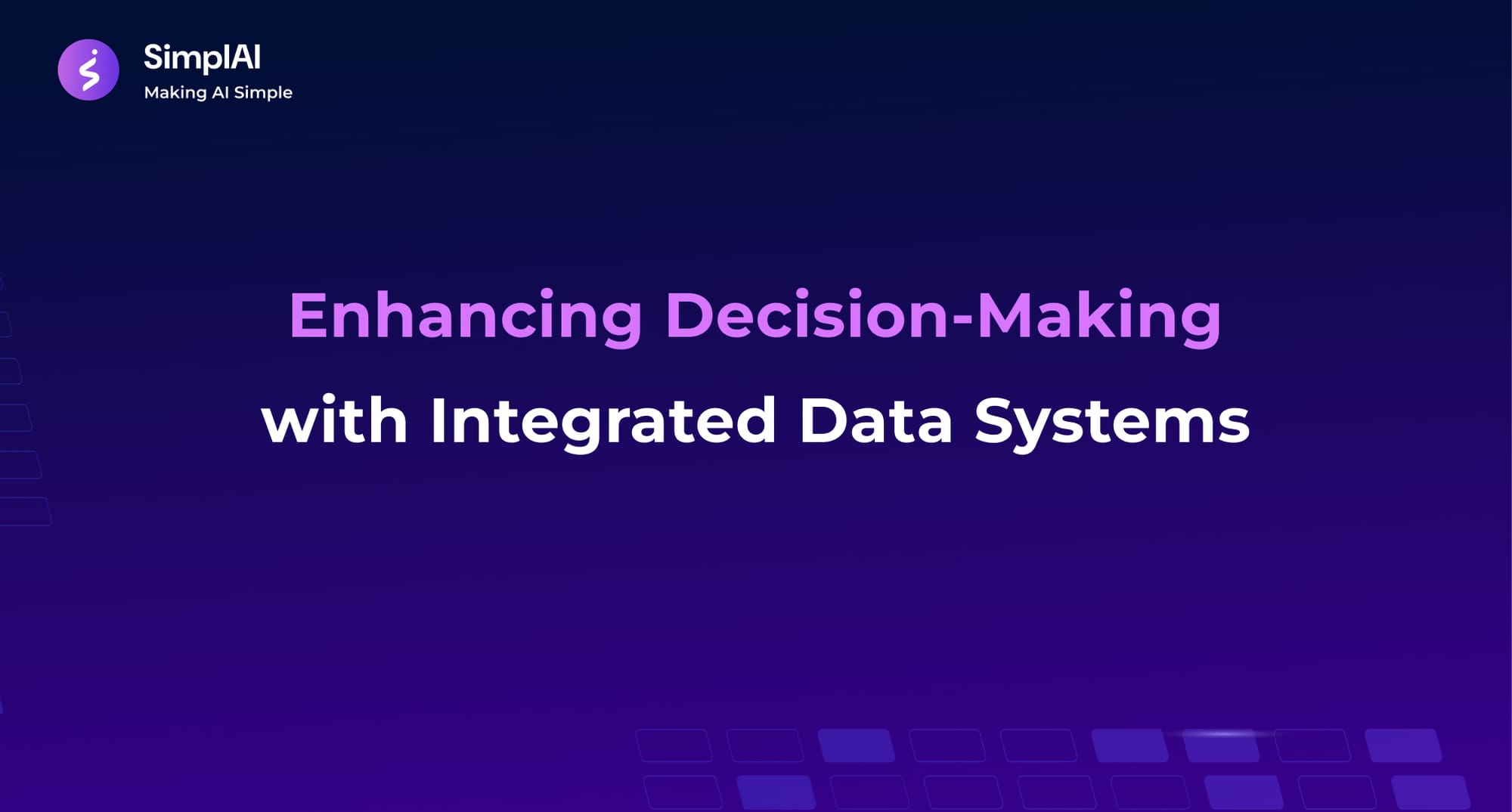Enhancing Decision-Making with Integrated Data Systems

In an era where data fuels the operational backbone of nearly every business, harnessing that data effectively is more crucial than ever. Integrated data systems in AI play a fundamental role in this process, enabling organizations to make sound, data-driven decisions that boost efficiency and deepen insights. By leveraging AI decision-making tools, companies can transform raw data into valuable information, leading to improved outcomes and strategic advantages.
Understanding Integrated Data Systems
Imagine an orchestra where every musician plays their instrument independently, leading to a chaotic symphony. Now picture an integrated data system as the conductor, unifying these elements into a harmonious piece of music. Integrated data systems pull together information from various sources across your organization—customer databases, sales reports, and marketing analytics—creating a cohesive data ecosystem.
The value of data-driven decision-making lies in its foundation of reliable, real-time data. Powerful AI data integration strategies help ensure that all departments have access to consistent and accurate information, which is critical for making informed business choices.
Why Integrated Data Systems Matter
1. Unifying Data Sources
With disparate systems often acting as silos of vital information, integrated data systems streamline data collection and management. They help business leaders identify trends, anticipate market changes, and respond swiftly to evolving customer needs.
2. Improving Efficiency
Automating processes through integrated systems reduces the time employees spend on manual data entry and reporting, allowing organizations to maximize their productivity. In fact, businesses that integrate their data can reduce operational costs significantly, all while enhancing their ability to scale operations.
3. Unlocking Advanced Insights
Data from various departments can be analyzed comprehensively, revealing insights that might be hidden when data remains segmented. By using integrated data systems, organizations can conduct sophisticated analyses, empowering them to uncover hidden opportunities and threats.
4. Enhancing AI Decision-Making Tools
With a solid foundation of integrated data, companies can leverage advanced credit management AI solutions and other AI technologies. This integration not only sharpens predictive analytics but also ensures that the digital tools used in decision-making processes are fed with high-quality data.
Case Study: Retail Transformation through Data Integration
Consider a retail company that harnesses integrated data systems to enhance customer experiences. By analyzing customer purchase histories alongside social media interactions, the retailer can create personalized marketing strategies that significantly increase sales. As they can predict inventory needs with greater accuracy, they reduce waste and improve fulfillment efficiency.

Overcoming Challenges with Best Practices
While the advantages of integrated data systems are clear, organizations may face challenges during implementation, including data quality issues and resistance to change. Here are best practices to ensure success:
1. Establish Clear Objectives
Define specific goals for your AI data integration strategies early in the process. Whether you aim to improve data quality or enable real-time analytics, clear objectives will guide your integration pathway.
2. Choose the Right Tools
Invest in robust integration solutions that offer ETL (Extract, Transform, Load) capabilities. These tools should be scalable and compatible with your existing systems, ensuring a seamless transition and continued functionality.
3. Prioritize Data Governance
Implementing strong data governance helps to maintain data integrity and security. Ensure your organization has uniform standards for data usage, which promotes compliance and builds trust in your systems.
SimplAI’s Solutions for Enhanced Decision-Making
At SimplAI, we specialize in providing the fastest and simplest way to build complex, high-accuracy agentic AI applications. By using our AI decision-making Agents in conjunction with integrated data systems, businesses can streamline their data flow, enhance operational efficiency, and ultimately, make smarter, quicker decisions.
Conclusion
In the digital age, the ability to make informed decisions based on integrated data is not just a competitive advantage; it's a necessity. Data-driven decision-making empowers organizations not only to respond to immediate needs but also to anticipate future challenges and opportunities.
Contact SimplAI today to learn more about our solutions and how we can empower your growth journey!

